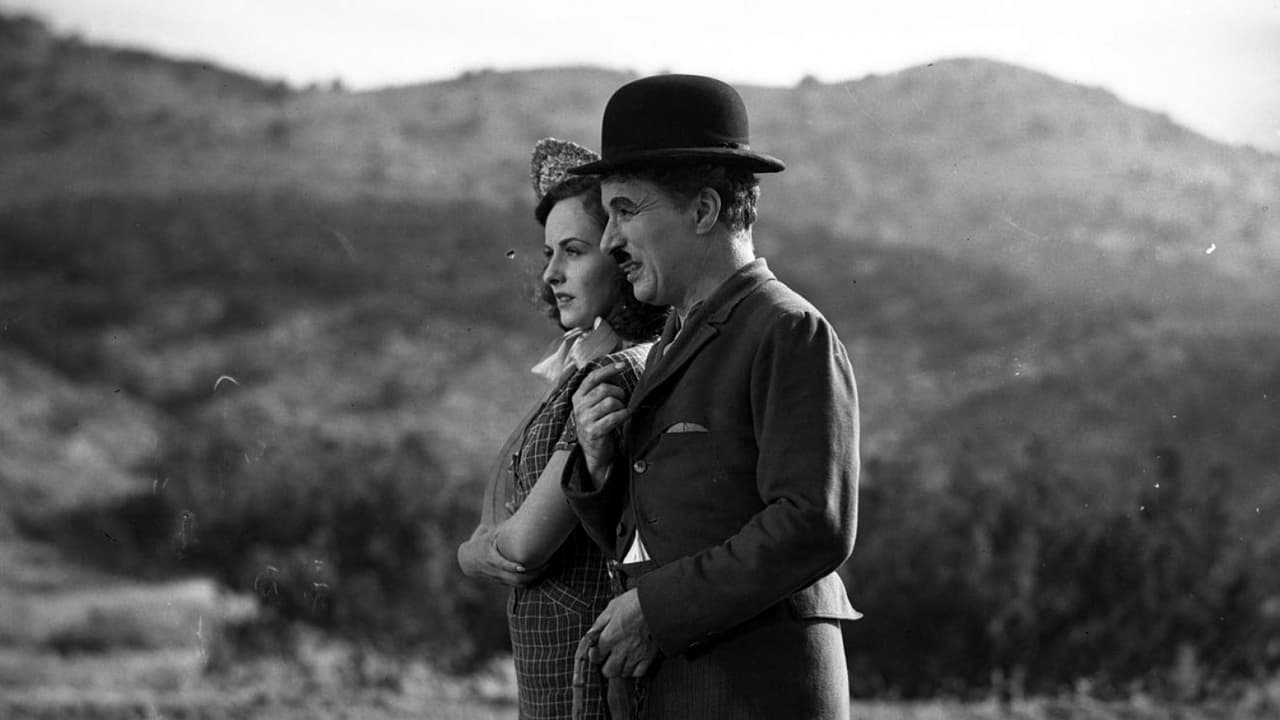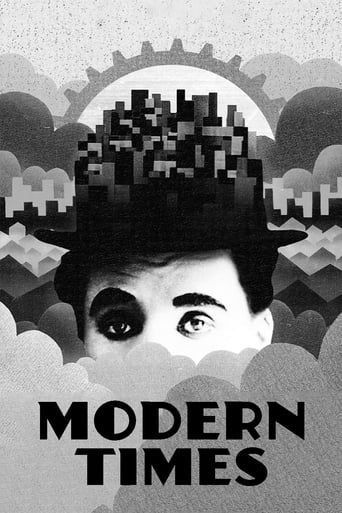



Crappy film
Better Late Then Never
The best films of this genre always show a path and provide a takeaway for being a better person.
View MoreThis is a gorgeous movie made by a gorgeous spirit.
View MoreThe Tramp struggles to live in modern industrial society with the help of a young homeless woman. Mordern Times was definitely a very pleasant suprise full of humor but also kindness, Charlie Chaplin gives a terrific perfomance and that fight scene in the prison was so well executed and just so funny. Definitely a movie that deserves the rating it has and even tho Chaplin never speaks (although he sings a bit) he showcases his emotions with his face and that to me is called real artistic and oscar worthy acting and the man just had it as it seems. (A+)
View MoreI always love charlie chaplin. Love to watch again and again. Great messages without speaking
View More81 years after this movie was produced i was honored to watch it and it was really worth it.A marvelous view about future of industrialization which (by the way) is our present day reality when machine takes the lead.But still humanity is in the struggle as always was for justice and in war against poverty and social crises.
View MoreI was actually about to completely write off this movie until I actually realised the genius that went into creating it. In a way Hollywood simply does not make movies like this any more, particularly where the creative genius of Charlie Chaplin is the writer, director, and star of the show. Sure, Chaplin is one of those actors that I have heard a lot about – he is one of the greats of the early years of Hollywood – but I never paid much attention to him believing that the only decent movies of the silent era came out of Germany (and to an extent Russia). However, a friend at work was talking about a film called The Dictator and a part of me decided that maybe it was time to actually sit down and see what Charlie Chaplin was all about. Well, I have to admit that I am glad that I did.The film itself doesn't have a plot, but rather is about the struggles of two people in the great depression and an age where technology is taking all of the jobs. However, Chaplin is a genius in how we satirises everything about modern life from automation, crazy inventions, the union movement, and even communism. On one level it simply seems to be nothing more than slapstick, though it is one of those movies that you have to take a step back and think about what is being said to really understand the true satire that Modern Times actually is – in a way it works on two levels, the slapstick for the lowest common denominator, and the satire of those who are actually willing to sit down and think about what is going on. Even then the slapstick itself is really clever – I am not going to forget the scene where he carries a tray into a restaurant to have everybody suddenly pile onto the dancefloor and then getting carried away with the crowd.What really impressed me was how versatile they were when it came to making silent films. Sure, by this time they had started to produce talkies, and you could tell that this film did have a sound track (and Chaplin even sings), however it is clear that you don't actually need sound, or even a lot of words, to be able to see the action that is happening, and to work out what is being said despite the fact that no words are coming out of the actor's mouth – only their lips are moving. In a way this type of film is actually far, far superior than many of the films that we see floating around today with all the great computerised special effects and clever stunt doubles. In fact all of the stunts in this movie would have been performed by Chaplin without any special effects whatsoever.Yet it is also interesting to see how much hasn't changed. In a way we look back in the days of our parents and grandparents and see a world where everybody had a job, and that you could drop out of school at year ten and walk straight into a career. It was also a world where people had money, and things were much more peaceful. However, Modern Times gives us a different glimpse into the great depression, where automation was taking all the jobs, and that unless you were skilled you were unable to find employment. Also notice how people are being sent to gaol simply for stealing a loaf of bread, but not only that but people will actually pursue somebody who is only trying to feed themselves. Yet we also have that dream of home ownership – and in a way it is painted that owning a home is a sign of wealth, a sign of achieving the American Dream – and the ending is interesting in that it gives the idea that no matter where you land up the dream is still alive.Having a job is a key to living the dream – as we see with the heroine. When Chaplin gets out of gaol the third time (it seems that he is always landing up in gaol – as if ending up there is just a part of life, however it is also just a minor inconvenience on the road to living the dream), she has found herself a job, and is now dressed well, and has possessions. In a way that reminded me of when I got my first job – suddenly I had money that I could spend, and I could go down to the shop and impulse buy an Iron Maiden T-Shirt. However, there is a catch, something that is not indicated in the movie, and that is the trap that the modern society creates – to survive you must work, but once you start working you suddenly have access to credit, and what credit, or more so debt, does is that entraps you in that daily cycle of forever going to work.Yet we also have the capitalist idea of forever producing more and becoming more efficient. The factory bosses are looking for ways to cut down on break times, so they create an automated feeding machine (which basically doesn't work). Then we have the assembly line going faster, and faster, and faster, until poor old Chaplin has a nervous breakdown and eventually sees bolts everywhere that must be turned. Yet this is still the case today, where employers are looking for more and better ways to become more efficient, to get more out of workers, and to eventually increase the bottom line. This is more so since, like in Chaplin's day, we have entered a period of a new normal after the Great Recession.
View More